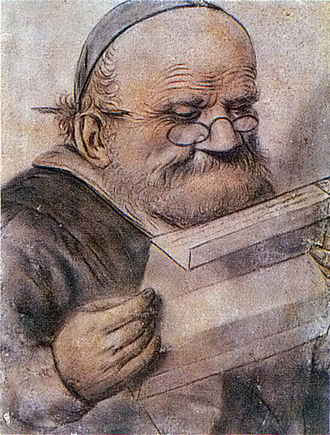399. Seriously Funny: Rabelais
In his outrageous novel about the giants Pantagruel and Gargantua, Rabelais engages with scholasticism, humanism, medicine, the reformation, and the querelle des femmes.
Themes:
• J.M. Cohen (trans.), Rabelais: Gargantua and Pantagruel (Harmondsworth: 1962).
• D.M. Frame (trans.), Rabelais: The Complete Works (Berkeley: 1991).
---
• M. Bakhtin, Rabelais and his World, trans. H. Iswolsky (Bloomington: 1984).
• L. Febvre, The Problem of Unbelief in the Sixteenth Century: the Religion of Rabelais, trans. B. Gottlieb (Cambridge MA: 1982).
• T. Haglund, Rabelais’ Contempt for Fortune: Pantagruelism, Politics, and Philosophy (Lanham: 2019).
• M.J. Heath, Rabelais (Tempe, AZ: 1996).
• J. O’Brien (ed.), The Cambridge Companion to Rabelais (Cambridge: 2011).
• B. Renner (ed.), A Companion to François Rabelais (Leiden: 2021).







Comments
Rabelais podcast.
Wonderfully informative. Just the thing to prompt me to finally grab the book on the bookshelf (Screech translation). I note however that some readers discovering reading Screech as a first reading of Rabelais. The claim is that while the scholarly notes are superb, other earlier translations better capture Rabelais' tone.
Finally, I know who Rabelais was
I again learned something from wonderful podcast!
As a kid in the 1960s, I went with my mother to movie theater in West Covina, suburban Los Angeles, to see the Music Man. In one of the songs, the conservative women of the town--pictured as clucking, gossiping hens--use author names from literature as reasons that Marian the Librarian's library contains "dirty books." They name Chaucer, Rabelais, and, most emphatically, Balzac! Over the years, aside from Chaucer, the other two authors were just names (though I have occasionally heard a bit about Balzac).
Now, I have a sense of who Rabelais was. (I have to admit that I do not think I would be much of a fan. Frankly, it sounds as though his writings would remind me of the type of talk that characterized the boys locker rooms when I was in middle and high school...I have moved on since then).
If you all will indulge me one more connection to Marion the Librarian...in 1988 I was a post-doc at the University of Oslo. My then-young bride went to a luncheon with the American Women's Club. A guest at that luncheon was Shirley Jones, who had played Marion in the Music Man (as well as leading roles in Oklahoma and Carousel).
Ah, the memories that an episode on Rabelais stirs!
Add new comment